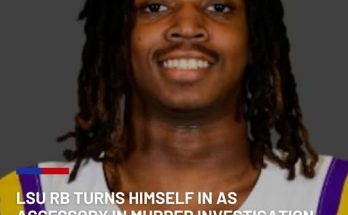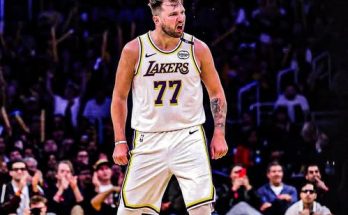The NBA Draft Lottery has always been a source of intrigue, excitement, and yes—controversy. But Monday night’s stunning result has cranked the dial to eleven. With just a 1.8% chance at landing the top pick, the Dallas Mavericks defied the odds and walked away with the No. 1 overall selection in the 2025 NBA Draft. And just like that, the conspiracy theories returned.
It didn’t take long. Social media platforms were immediately flooded with reactions—not of joy or relief from Mavericks fans, but of skepticism and suspicion. Memes labeling the lottery as “rigged” trended within minutes. Theories ranged from tongue-in-cheek jokes to full-blown accusations that the league had orchestrated the result to reward Dallas. After all, this is the same organization that sent Luka Doncic to the Los Angeles Lakers just three months ago in a blockbuster trade that reshaped the league. Now, that same franchise is in line to select what many believe to be the next generational superstar: Duke forward Cooper Flagg.
Flagg, the consensus No. 1 overall pick according to nearly every major scouting outlet including ESPN’s Jonathan Givony, is being hailed as a franchise-altering talent. His two-way brilliance, elite athleticism, and fierce competitiveness have drawn comparisons to some of the greatest to ever play the game. Landing him isn’t just a win; it’s a potential resurrection for a Mavericks team that looked rudderless after parting ways with Doncic.
And therein lies the suspicion. How can a team go from trading away its superstar, effectively hitting reset, only to be handed the golden ticket just weeks later? For fans across the NBA, it’s all too familiar—and not in a good way.
To understand why this moment resonates so strongly, you have to go back to 1985. That was the year of the inaugural NBA Draft Lottery, a system introduced to deter teams from intentionally losing games to secure higher picks. But rather than silencing critics, the process ignited a firestorm. The New York Knicks won the rights to select Georgetown center Patrick Ewing, despite long odds. Immediately, conspiracy theories surfaced. Did the NBA rig the result to revitalize its largest media market? Was the Knicks’ envelope frozen or creased to make it easier to identify?
No one has carried the legacy of that moment longer than Rick Welts. In 1985, he was in charge of the league’s operations and presided over that now-infamous drawing. Today, he serves as CEO of the Dallas Mavericks. When his team won Monday night’s lottery, he knew exactly what was coming.
“I’m the only person who was in this room and the room 40 years ago,” Welts told The Washington Post’s Ben Golliver. “I was in charge of the NBA Draft Lottery 40 years ago when Patrick Ewing won. I’ve been doing conspiracy theory stories ever since. This is very surreal, personally.”
Surreal is an understatement. The parallels are uncanny. Ewing to the Knicks in ’85. Wembanyama to the Spurs in 2023. Now, Flagg to Dallas in 2025? It’s no wonder the public is raising its collective eyebrow. The NBA’s lottery, despite all its protocols and independent oversight, continues to find itself at the center of controversy whenever a “dream scenario” plays out too perfectly.
NBA Commissioner Adam Silver was quick to defend the league’s integrity. Just as he did after the San Antonio Spurs secured the No. 1 pick in 2023 and selected Victor Wembanyama, Silver emphasized that the process is overseen by third-party auditors, locked away from cameras, and designed to prevent any manipulation. But facts, as they often do in the court of public opinion, are no match for perception.
The truth is, no matter how airtight the system may be, the lottery is inherently dramatic—and the NBA, more than any other sports league, is built on narratives. When teams jump the odds, when big markets get big stars, when the unexpected becomes reality, fans are conditioned to suspect that something larger is at play. Especially when the stakes are this high.
Dallas wasn’t just another lottery team. They were a franchise in transition. The Luka trade, while still fresh, signaled a seismic shift in direction. In return, the Mavericks received a mix of young talent and future assets from the Lakers. But the message was clear: they were rebuilding. Losing Doncic meant losing their identity. Or so it seemed.
Now, with Cooper Flagg potentially on the way, the Mavericks find themselves not only with a new face of the franchise, but possibly with one that brings as much star power and intrigue as Luka ever did. The fact that it comes via a lottery win so statistically improbable only amplifies the noise.
Of course, not everyone buys into the conspiracy talk. For many, this is simply the randomness of sport—chaos in its purest, most beautiful form. Every team enters the lottery knowing the odds. Someone has to win, even if it’s the team with less than a 2% chance. That’s why they draw the balls.
Still, there’s something undeniably eerie about how smoothly it all lines up. Dallas loses its superstar and gains a potential new one in the blink of an eye. The same executive who ran the most scrutinized lottery in history now oversees another eyebrow-raising result. The league, meanwhile, gets a rising megastar planted in a major market, ensuring relevance and revenue. Coincidence? Maybe. But even the most optimistic fan can’t help but wonder.
And that’s the point. The lottery isn’t just a tool for parity. It’s a lightning rod for suspicion. It invites debate. It fuels stories. It drives engagement in a league that thrives on year-round conversation. Whether intentionally or not, the NBA has built a machine where the product on the court is only half the spectacle. The other half plays out on Twitter threads, Reddit forums, talk shows, and group chats.
Take a closer look at the reaction Monday night. It wasn’t just Mavericks fans tuning in. It was Lakers fans, still giddy over acquiring Doncic. Knicks fans, flashing back to ’85. Spurs fans, defending their own recent stroke of luck. Everyone had a stake. Everyone had an opinion. And that’s what keeps the league humming.
If the Mavericks do end up selecting Flagg, the expectations will be sky-high. He’s not just a great player; he’s a symbol of rebirth. A 6-foot-9 do-it-all forward with uncanny instincts and elite motor, Flagg has been dominating the college ranks and leading Duke back into the national spotlight. His arrival in Dallas would signal the dawn of a new era—one that could rival, or even surpass, the Doncic years.
But with great reward comes great pressure. Fair or not, Flagg will walk into the league with a target on his back—not only as a top pick, but as the latest figure in a saga that seems almost too perfect to believe. Every highlight, every slump, every playoff run will be viewed through a lens clouded by suspicion.
That’s the double-edged sword of the NBA lottery. It creates stars. It shapes dynasties. But it also breeds doubt. Forty years after the Knicks secured Ewing and sparked the first great lottery conspiracy, the league still finds itself answering the same questions. And with Rick Welts once again at the center of it all, the full-circle nature of this story is almost poetic.
So here we are. Dallas has the pick. Cooper Flagg is on the board. The NBA world is watching, whispering, theorizing. Maybe it’s all coincidence. Maybe the basketball gods just love a good story. Or maybe, just maybe, the wheel keeps spinning because it was always meant to.
One thing’s for sure: the debate won’t stop any time soon.


